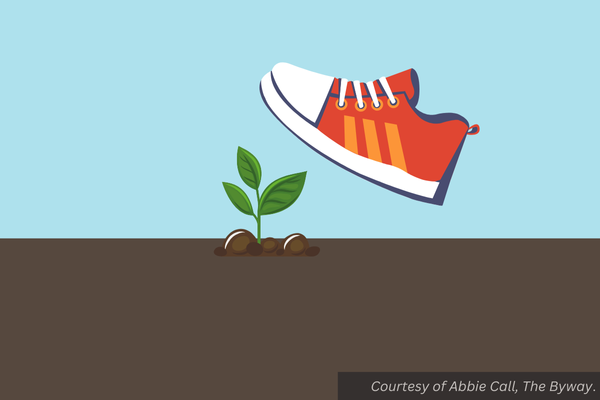Throughout the past couple of years as I have gotten to know the journalism world, I have been exposed to many different kinds of public discourse. I have seen it on social media, in public meetings, and in newspapers including our own. The worst examples would contain nothing but a small degree of civility. Some would argue that this is the active way of getting a point across. I think that it’s actually civility that is active.
I used to believe that civility meant passively agreeing with or just not discussing the issues that bothered me. I believed in civil discourse, but I did not like to fight. Still, I don’t think that approach is quite the right way to hold up my beliefs.
There’s a different kind of passivity, which involves trampling others with one’s beliefs. You would think it would be the active alternative to my way, but it’s not.
Anger is easy, passive, and lazy. Kindness — civility — is active.
Four Ways to Practice Active Civility
Recently, I came across a great example of civility. From a few people at a meeting, I gleaned four ways to be more active in my interactions with others.
Encourage Input
First, genuinely encourage input from others. This can greatly improve communication. This practice, in the form of public comment, is written into the NEPA process for government environmental planning. When it’s functioning, it creates a direct avenue for communication between agencies and the public.
More civil discussions could encourage input by taking a page from NEPA’s book and including the words, “What are your thoughts on this?” then leaving space for another person’s argument and acknowledging their insights.
Don’t Engage with Faulty Arguments
Second, don’t engage with faulty arguments. In English or debate class, you would call these fallacies. There are over one hundred of them, and they are all over the place in our everyday interactions.
There is great value in being able to see another’s faulty arguments, not as an arguing technique, but as a chance to address the heart of the argument. My husband is very good at this. When we are having a lively debate, he will politely point out my fallacies, like a moderator, at which point I will try to rephrase my points in a way that addresses the topic more fairly.
Be Transparent
Third, be transparent. Don’t try to hide flaws in your argument. Make it as easy as possible for people to understand your intentions, whether they will like them or not.
Trying to trick those who disagree into blindly accepting usually does not fool anyone. For example, as AJ Martel pointed out a few months ago, the U.S. Constitution was written by slave owners. If he had ignored that important piece of his argument to not rewrite the Constitution, he would have risked alienating those who saw it as a clear flaw.
Do Complete Research
Fourth, do complete research. This step, though maybe not the most difficult, can be the most time-consuming. To research a topic completely, it’s important to know both sides, understanding why the other side believes what they do. This takes being in circles, even just as an observer, that you normally would not be in.
Claims based on incomplete research tend to encourage more argument rather than resolution. Instead, active civility might include holding back an accusation for a few days while reading up on where the other person might be coming from.
A Society Where Empathy Can Thrive
In the end, there is simply no substitute for empathy. Unfortunately, empathy is not something one can just slip into their discourse like the rest of these. Empathy is part of who a person is, and it must be grown and incorporated into what they do. But maybe practicing active civility will help.
If society is going to be capable of civil discussion, its people must master the art of active civility: encouraging input, not engaging with faulty arguments, being transparent, and doing complete research. And hopefully a little empathy will thrive alongside it.
– by Abbie Call
Read more from Abbie in The Road to Understanding Includes a Mental Disorder or Two, and That’s Good!

Abbie Call – Cannonville/Kirksville, Missouri
Abbie Call is a journalist and editor at The Byway. She graduated in 2022 with a bachelor’s degree in editing and publishing from Brigham Young University. Her favorite topics to write about include anything local, Utah’s megadrought, and mental health and meaning in life. In her free time, she enjoys reading, hanging out with family, quilting and hiking.
Find Abbie on Threads @abbieb.call or contact her at abbiecall27@gmail.com.

